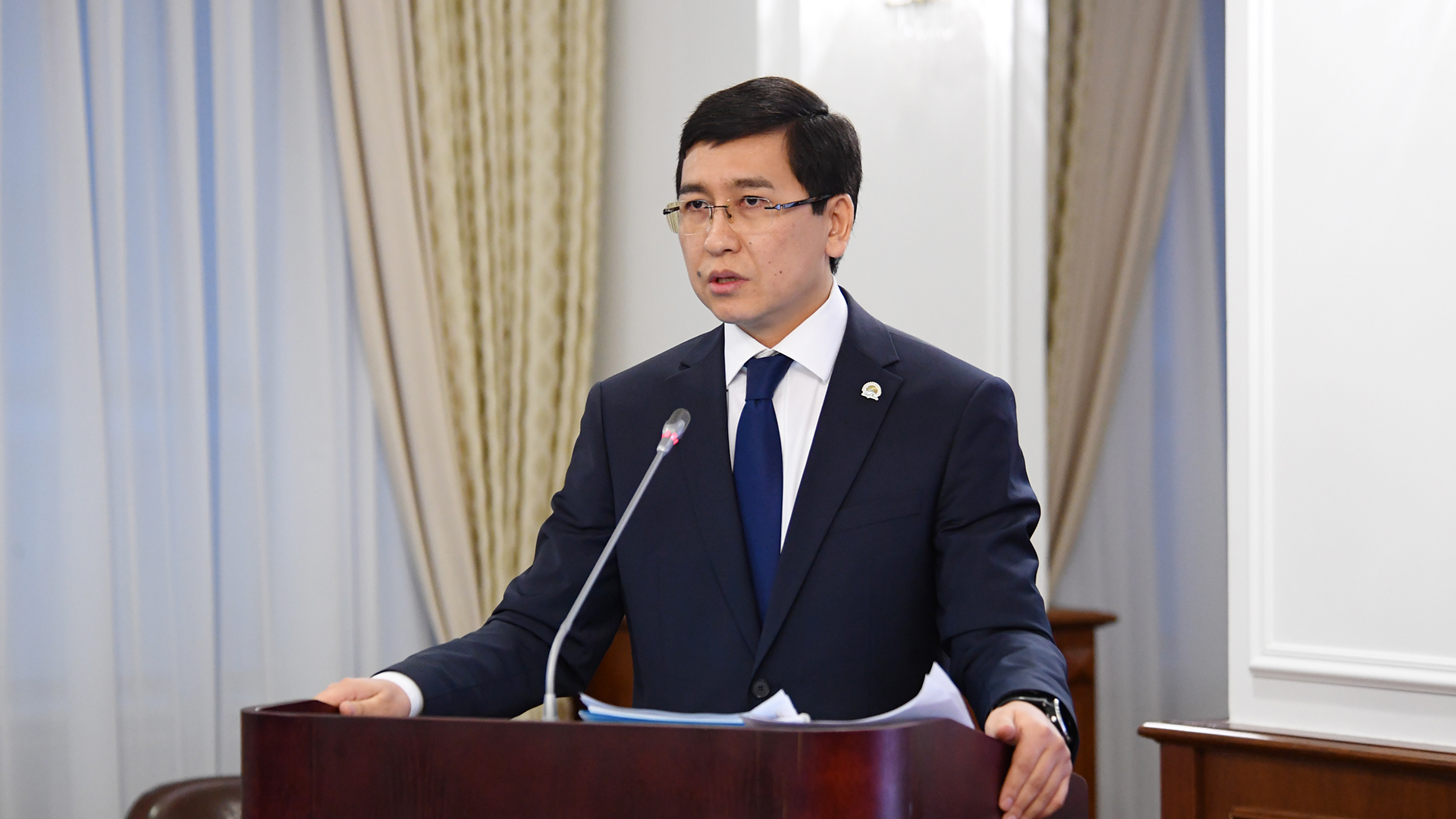14 July 2020, 15:31

At the government session chaired by Prime Minister Askar Mamin, Minister of Education and Science Askhat Aimagambetov reported on preparations for the new school year.
As Aimagambetov noted, teachers and students are at high risk of contracting coronavirus infection and SARS. So, only SARS annually infects 70% of students.
“For us, the main priority is the life and health of children and teachers,” the minister emphasized.
In this regard, the Ministry of Education and Science considers that it is too early to open schools for children and suggest repeating the fourth quarter’s experience — continuing education in a distance format.
“First. The academic year of September 1 is planned to begin in a remote format in grades 1-11 in all schools of the country, with the exception of remote rural ungraded schools. Second. According to the statement of the parents of primary school students, subject to conditions, it is planned to provide the possibility of attending obligatory classes in-person in compliance with strict sanitary measures,” the minister said.
This is due to the age characteristics of primary school students, the beginning of the formation of skills for self-study and self-organization. However, at the same time, sanitary safety measures in schools will be maximized.
“Children will study in only one office, changes at different times, measuring the temperature at the entrance, strengthening the ventilation, quartz and wet cleaning. For the organization of social distancing, dividing into shifts of study, into subgroups with a number of not more than 10-15 children, alternating days of schooling is provided for. In addition, some of the items will be carried out remotely,” the head of the Ministry of Education and Science informed.
Third. Children in schools in remote rural settlements with a favorable epidemiological background will be educated in regular mode. This is 4% of the total number of students. A total of 1,934 such schools with a contingent of 127 thousand children were identified. The minister emphasized that while distance learning is only a solution for the start of the school year.
“Fourth. In the future, depending on the steady decrease in the incidence of the population, a gradual transition of schools to combined and full-time training formats in compliance with sanitary requirements will be carried out,” he emphasized.
Fifth. The most vulnerable learning groups at home: children with special learning needs, children from low-income families, primary school students — inclusive and accessible education will be organized for these groups of students.
Askhat Aimagambetov also dwelled on the readiness of the education sector for the start of the new season. According to the ministry, in the process of preparation, 35 thousand computers were purchased. Responsibilities of local executive bodies include providing schools, teachers, and students with computers.
According to the results of the fourth quarter, suggestions of teachers and students were collected. Over the summer, the Ministry of Education and Science worked on the modernization of Internet platforms. Training material on the subjects of the first and second quarters has been prepared. Each akimat should provide an Internet platform with streaming capability for online training.
A lot of work was done on content provision and preparation of TV lessons.
“For the training of educators, online courses on 5 modules have been created aimed at developing IT competencies, studying cyber pedagogy and teaching methodology. The start of online courses is planned taking into account the exit from holidays on July 20 with the coverage of 350 thousand teachers,” Aimagambetov said.
Colleges will also begin the new school year remotely. The traditional format will be on an individual schedule in the organization of industrial training, professional practice for first-year and graduate students, as well as in remote colleges with a small contingent with an increase in the sanitary regime.
Higher education training will mainly be organized remotely. The traditional format will be on an individual schedule for laboratory work, industrial training and professional practice.
According to OECD and World Bank experts, the COVID-19 pandemic has caused significant learning difficulties for students around the world. It is worth noting that the negative impact of COVID-19 on education can be reflected for a long time. For this, the Ministry of Education and Science of the Republic of Kazakhstan is taking additional measures. As a result of the fourth, studies were conducted, discussions were held with experts, the opinion of the parental community and society was taken into account. International experience has also been studied.
“The Ministry of Education and Science, being an authorized body in the education system, in such a difficult time should, on the one hand, ensure the provision of quality education, and on the other, prevent the spread of the virus among students and teachers. In general, preparation for the school year will be continued in a systematic manner,” the minister concluded.
Stay updated about the events of the Prime Minister and the Government of Kazakhstan - subscribe to the official Telegram channel
Subscribe